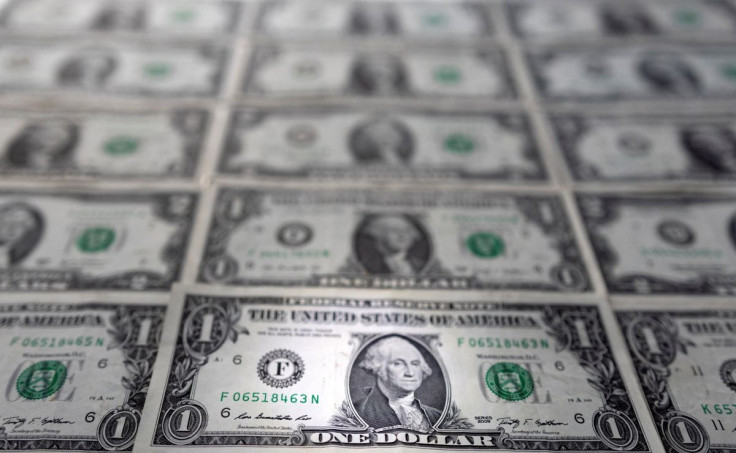Dollar Stumbles As Rate Path Fuels Recession Worries

The U.S. dollar slipped against its major peers on Friday, on course for its first weekly decline this month as investors continue to assess the path for Federal Reserve policy and whether aggressive rate hikes would trigger a recession.
The safe-haven currency also lost support amid improved market sentiment, which saw regional stock markets rise and buoyed riskier currencies like the Australian and New Zealand dollars.
The dollar index, which measures the greenback against six rivals, sank 0.2% to 104.19 in Asia. That undid the previous day's 0.19% rise, which was driven mostly by a decline in the euro after weak European factory data reduced bets for European Central Bank tightening.
"Recession talk has upset the DXY uptrend, but we don't think retracements have legs beyond the low 102s," Westpac strategists wrote in a client note, referring to the dollar index.
"Fed Funds is set to rise above 3% by year's end, so USD interest rate support should ultimately continue to build," they added. "The ECB meanwhile is struggling to contain peripheral spreads and the Eurozone is facing more material stagflation hardship - hardly enticing."
Dollar trading has been choppy this week, with markets now betting on more cautious policy action from the Fed after another expected 75 basis point rate increase in July. The dollar index has dropped 0.42% over the period.
Fed Governor Michelle Bowman said on Thursday that she supports 50 basis point hikes for "the next few" meetings after July's. Meanwhile, Fed Chair Jerome Powell, in his second day of Congressional testimony, stressed the central bank's "unconditional" commitment to taming inflation, even amid risks to growth.
Recession fears tamed Treasury yields overnight, suppressing a key support for the dollar, with that on the 10-year note sliding to a two-week low. [US/]
Against the yen, which is extremely sensitive to changes in U.S. yields, the dollar eased 0.2% to 134.66. For the week, it was down 0.25%, and set to snap a three-week, 6.19% winning streak.
The euro ticked up 0.22% to $1.05435, but after tumbling 0.44% overnight after weaker-than-expected German and French PMI figures.
Germany also triggered the "alarm stage" of its emergency gas plan on Thursday in response to falling Russian supplies.
"The market has started to trim a reasonable amount out of pricing for the next couple of ECB meetings," National Australia Bank interest-rate strategist Ken Crompton said on a podcast.
"There have been a couple of factors there which have really added up, which have really started to question how far the ECB will be able to get into its tightening."
For the week though, the euro remains up 0.52% against the dollar.
Sterling rebounded 0.14% to $1.22785, putting it on track for a 0.48% weekly rise that would end a three-week losing run.
Australia's dollar ticked up 0.28% to $0.6914, but was still set for a 0.32% weekly decline, its third straight losing week. The New Zealand dollar gained 0.4% to $0.6302, paring its loss for the week to 0.19%.
(Editing by Jacqueline Wong and Stephen Coates)
© Copyright Thomson Reuters 2024. All rights reserved.



















